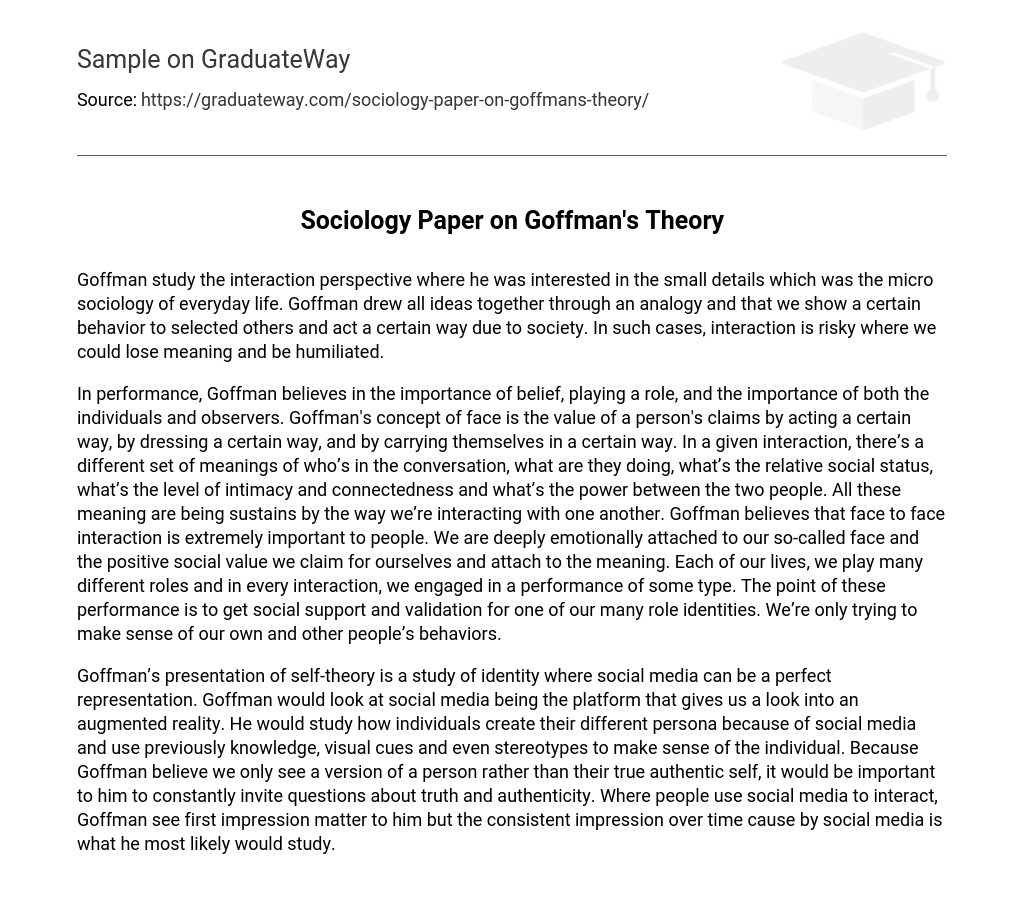Goffman study the interaction perspective where he was interested in the small details which was the micro sociology of everyday life. Goffman drew all ideas together through an analogy and that we show a certain behavior to selected others and act a certain way due to society. In such cases, interaction is risky where we could lose meaning and be humiliated.
In performance, Goffman believes in the importance of belief, playing a role, and the importance of both the individuals and observers. Goffman’s concept of face is the value of a person’s claims by acting a certain way, by dressing a certain way, and by carrying themselves in a certain way. In a given interaction, there’s a different set of meanings of who’s in the conversation, what are they doing, what’s the relative social status, what’s the level of intimacy and connectedness and what’s the power between the two people. All these meaning are being sustains by the way we’re interacting with one another. Goffman believes that face to face interaction is extremely important to people. We are deeply emotionally attached to our so-called face and the positive social value we claim for ourselves and attach to the meaning. Each of our lives, we play many different roles and in every interaction, we engaged in a performance of some type. The point of these performance is to get social support and validation for one of our many role identities. We’re only trying to make sense of our own and other people’s behaviors.
Goffman’s presentation of self-theory is a study of identity where social media can be a perfect representation. Goffman would look at social media being the platform that gives us a look into an augmented reality. He would study how individuals create their different persona because of social media and use previously knowledge, visual cues and even stereotypes to make sense of the individual. Because Goffman believe we only see a version of a person rather than their true authentic self, it would be important to him to constantly invite questions about truth and authenticity. Where people use social media to interact, Goffman see first impression matter to him but the consistent impression over time cause by social media is what he most likely would study.





